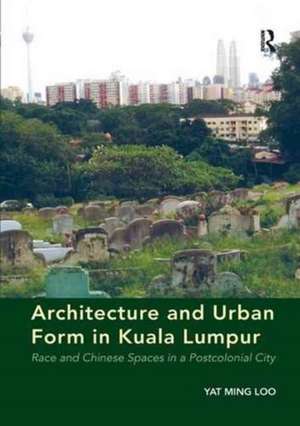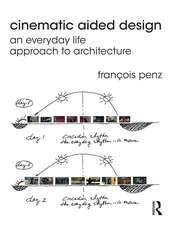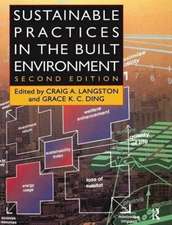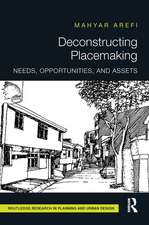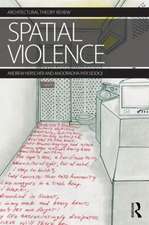Architecture and Urban Form in Kuala Lumpur: Race and Chinese Spaces in a Postcolonial City
Autor Yat Ming Looen Limba Engleză Paperback – 15 noi 2016
| Toate formatele și edițiile | Preț | Express |
|---|---|---|
| Paperback (1) | 337.39 lei 6-8 săpt. | |
| Taylor & Francis – 15 noi 2016 | 337.39 lei 6-8 săpt. | |
| Hardback (1) | 823.57 lei 6-8 săpt. | |
| Taylor & Francis – 14 iun 2013 | 823.57 lei 6-8 săpt. |
Preț: 337.39 lei
Preț vechi: 386.32 lei
-13% Nou
Puncte Express: 506
Preț estimativ în valută:
64.58€ • 70.17$ • 54.28£
64.58€ • 70.17$ • 54.28£
Carte tipărită la comandă
Livrare economică 21 aprilie-05 mai
Preluare comenzi: 021 569.72.76
Specificații
ISBN-13: 9781138267008
ISBN-10: 1138267007
Pagini: 234
Dimensiuni: 174 x 246 mm
Greutate: 0.41 kg
Ediția:1
Editura: Taylor & Francis
Colecția Routledge
Locul publicării:Oxford, United Kingdom
ISBN-10: 1138267007
Pagini: 234
Dimensiuni: 174 x 246 mm
Greutate: 0.41 kg
Ediția:1
Editura: Taylor & Francis
Colecția Routledge
Locul publicării:Oxford, United Kingdom
Notă biografică
Yat Ming Loo, Bartlett School of Architecture, University College London, UK.
Recenzii
'Said’s approach, while characterized by exemplary scholarship and a remarkably broad canvas, is distinguished by what is essentially a neutral stance. He is more interested in the traffic of ideas between the East and the West than in taking sides in a struggle between them....this book opens out a number of important issues which deserve attention and further analysis'. New Zealand Journal of Asian Studies
Cuprins
Chapter 1 Introduction; Chapter 2 The Racialised Landscapes of Nation - Race Relations and Spatial Segregation; Chapter 3 Colonial Identificaton and Kuala Lumpur; Chapter 4 Duplicating Colonial Identification - KLCC and Putrajaya; Chapter 5 The Making of 'Chinatown'; Chapter 6 Landscape of the Non-Descript: Kuala Lumpur Chinese Cemeteries; Chapter 7 Conclusion;
Descriere
This book is arguably the first academic book to examine the relationship of Malaysia's large Chinese minority with the politics of architecture and urbanism in Kuala Lumpur. It is also one of the few academic books to situate the Chinese diaspora spaces at the centre of the construction of city and nation. By including the spatial contestation of those from the margins and their resistance against the hegemonic state ideology, this book proposes a recuperative urban and architectural history, seeking to revalidate the marginalised spaces of minority community (Chinese spaces in Kuala Lumpur), and re-script them into the narrative of the postcolonial nation-state.
